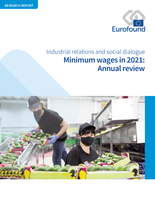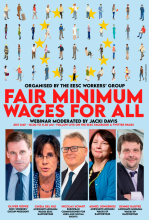Wages are among the central subjects for collective bargaining. Collective bargaining may set wage floors as well as setting wages above these floors where economic factors allow, and wage adjustments which may ensure that workers get a fair share of productivity gains while not impairing the capacity of employers to operate profitably.
Γλώσσες
Κύριο μενού
Μισθοί
Αρχική » Μισθοί
Υπηρεσίες του Ο.ΜΕ.Δ.
Οι υπηρεσίες του Ο.ΜΕ.Δ. παρέχονται στις συνδικαλιστικές οργανώσεις εργοδοτών και εργαζομένων καθώς και σε μεμονωμένους εργοδότες σε επίπεδο επιχείρησης που επιθυμούν να απευθυνθούν σε αυτόν. Μεταξύ των εργοδοτών συγκαταλέγεται και το Ελληνικό Δημόσιο, για τους εργαζόμενους με σχέση εργασίας ιδιωτικού δικαίου στις Δημόσιες υπηρεσίες, Ν.Π.Δ.Δ. και Ο.Τ.Α.
Υπηρεσίες
Στοιχεία επικοινωνίας
Διεύθυνση: Πλατεία Βικτωρίας 7, 104 34 Αθήνα
Τ: +302108814922
E: e-mail: [email protected]
Ωράριο λειτουργίας: Δευτέρα – Παρασκευή, 09.00 – 17.00
Πνευματικά Δικαιώματα - Όροι χρήσης
Copyright © 2014 Οργανισμός Μεσολάβησης & Διαιτησίας All rights reserved.
Unless otherwise stated, the content of this page is licensed Under Creative Commons Attribution-NonCommercial-ShareAlike 3.0



